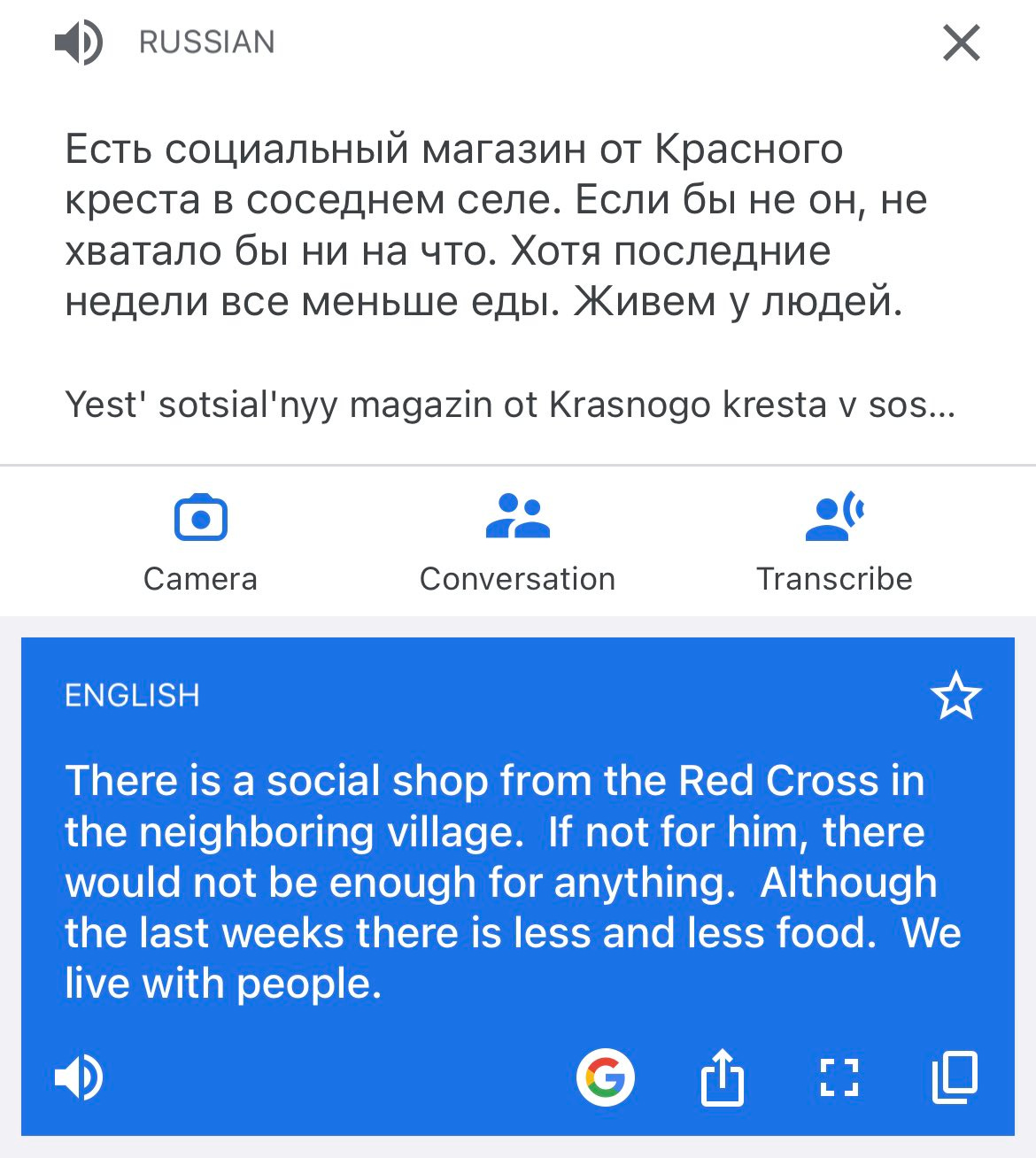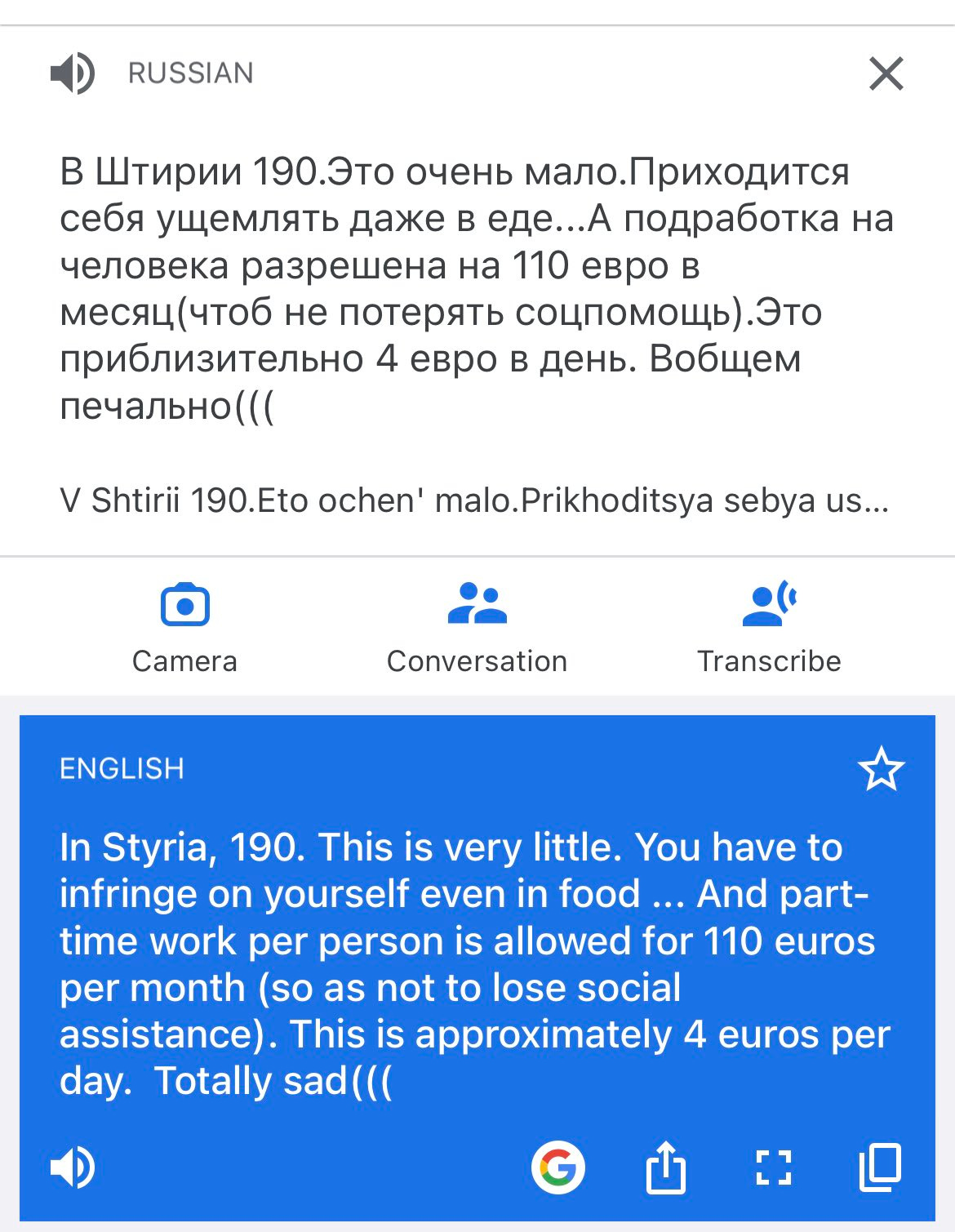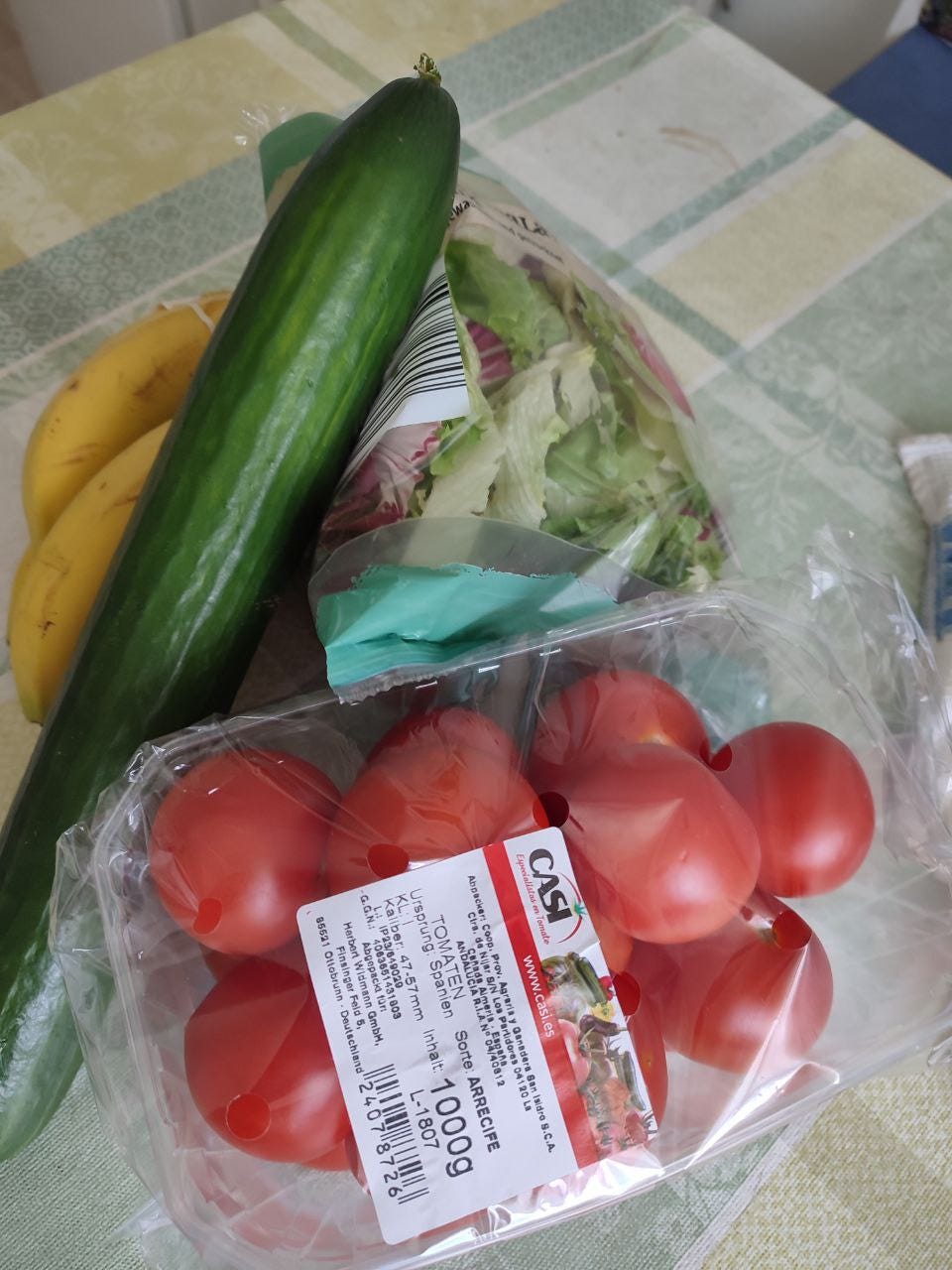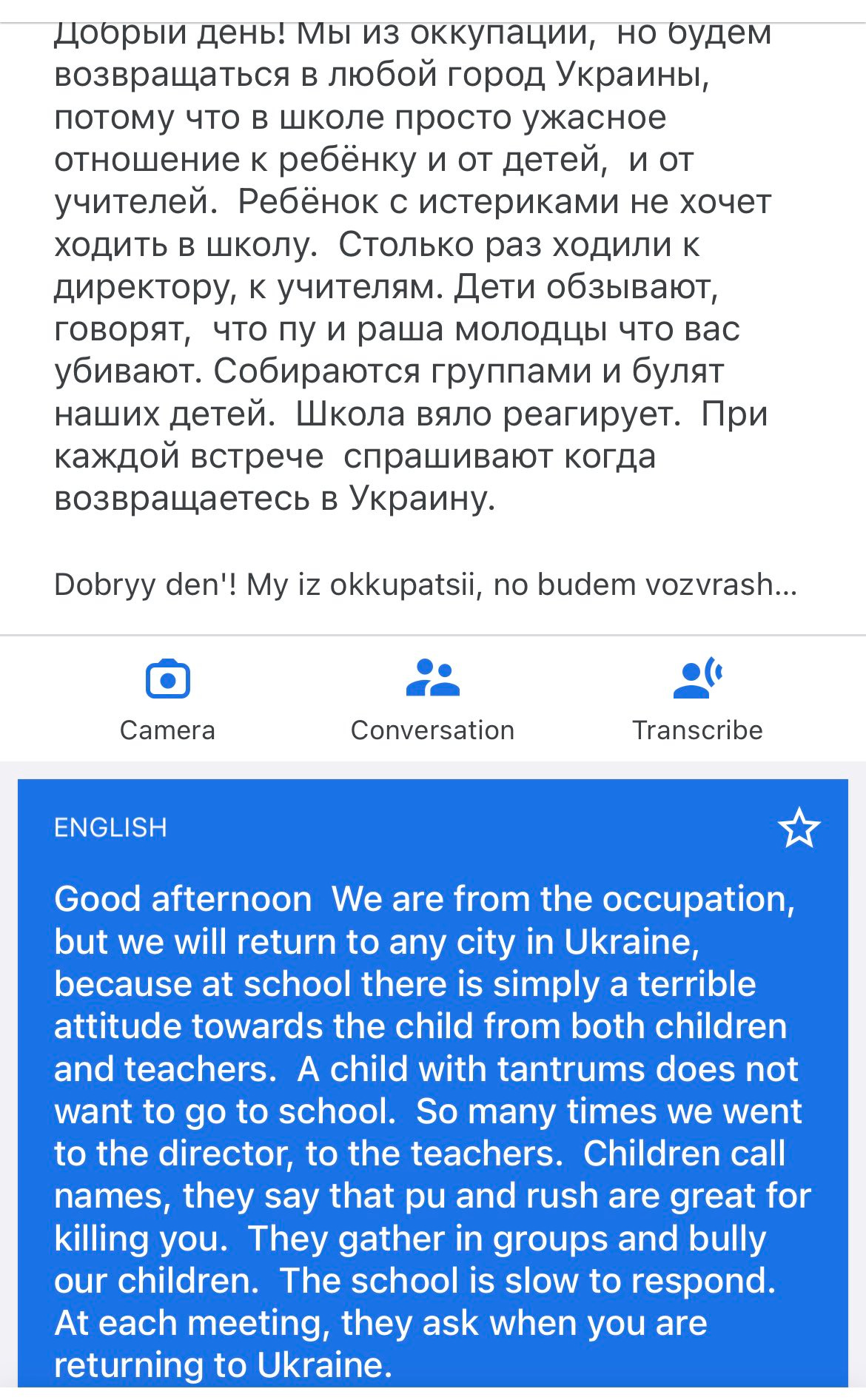Invisible suffering
Yesterday I posed a simple question: how are you all doing? The answers were shocking, even to me. This is my attempt to summarize what I heard from Ukrainians living in Austria.
It started with a simple enough question: how are you all doing now, this second spring, for many, in Austria? What are your biggest challenges? The results were shocking even to me.
When Austria took away free public transportation for Ukrainians last fall, they suddenly, almost overnight, became less visible. Naturally, when you don’t see or hear from someone, you sort of assume they must be doing ok. If there was a crisis, you would hear about it. But the reality is many Ukrainians don’t have enough money to get on a train or bus or travel around Vienna like they used to last summer. Therefore locals in Austria do not see and hear about their struggles.
I began by asking simply how one survives on €260 per month as an adult. I was quickly reminded that not every federal state is even paying the €260 mandated by the federal government. Burgenland pays €213. I received this message from a woman living near Mattersburg with generous Austrian hosts:
Steiermark pays only €190 per adult, per month. And, as this woman explains, it has not adopted the new formula allowing Ukrainians in Grundversorgung to earn more legally, meaning their legal earnings are also capped at €110 per month. Vienna has adopted a new formula, as has Upper Austria. It is complicated and few understand it and as always up the interpretation of the individual social worker sitting in front of a Ukrainian with a calculator, but in theory, at least, it allows for more legal earnings without losing all of one’s payments and state-provided or subsidised housing.
How to live off so little money when work isn’t possible because either you cannot, or there isn’t any, or you are prohibited from earning more legally? Only by “shopping” at social markets (a type of grocer for low-income customers to which, in some cases you have to have some kind of membership card proving you qualify to shop there) and at charity food collection points, such as the Red Cross which offers a bag of groceries (these may be past expiry date and one does not choose the contents) for a fixed price once a week at points in Lower Austria and Burgenland on Saturdays. In other words, as Austria’s ministers and supermarket executives were meeting this week to discuss the inflation crisis (food prices up 20% year on year), I discovered many Ukrainians in Austria cannot even afford to shop in supermarkets in the first place. I receive photos like this yesterday from our Cards for Ukraine €50 supermarket gift card program. This means staples like rice, pasta, flour are being bought at social markets or via charity programs, and the Hofer card was only used to buy fresh produce. Stretching €50 as far as possible.
Those with children receive additional funds, namely the “Familienbeihilfe”, a payment of roughly €140 per month per child which every family living in Austria is entitled to. For adults without children, they have no other sources of income, and those in government-provided housing where they are “fed” are expected to survive on €40 per month pocket money under the rules of the much-criticised Grundversorgung system. A woman living in a hotel in central Vienna sent me this yesterday:
It is important to point out that asylum-seekers from non-EU countries whose applications have been approved move into a new category, Mindestsicherung, a form of basic income which all legal residents of Austria are entitled to when out of work, etc, but Ukrainians seeking temporary protection in the EU are not entitled to. Ukrainians are still treated, financially, by the Austrian state as asylum-seekers who have not yet had their trials. Therefore you will often hear “the Syrians get €800 and we only get €200” because this is the conclusion many Ukrainian refugees draw. Now, it is true that Ukrainians have full access to the labor market, which asylum-seekers from other non-EU nations do not have, but it is important to remember how many people cannot work: pensioners, disabled, mothers with very young children. And finding work without German language skills is really, really hard. As one woman wrote yesterday “without German the only job you can get is as a cleaner.” I met an artist and former project manager recently who is now working in a cafe kitchen and scrubbing toilets. That is her new reality to stay somehow afloat financially. She speaks English fluently but it is not enough here.
Another woman brought up the issue of her pensioner parents. Some of the NGOs, in this case organized housing in Vienna, are now asking Ukrainians to declare their pension income in Ukraine. There is a great fear, and in some cases this has already become a reality (definitely in Upper Austria, I am not aware yet in Vienna), the amount of pension paid out in Ukraine will be deducted from the Grundversorgung paid out in Austria. Which is, of course, ludicrous. If a Ukrainian pension is less than €100, which it is in most cases, it is hardly a large some of money but it is supplemental income which the elderly desperately need to eat as €260 per month in Austria today does not get one very far at all, to put it mildly. This woman argued that families with children are allowed to collect the Familienbeihilfe without having their payments to children reduced, why would anyone reduce the payment received by the elderly? Where is the logic, she asks. I shake my head in horror.
“Fund Soziales Wien asked for bank statements showing the pension amounts. They told us they will soon give us papers where we will have to declare the amounts. This was at a general meeting of residents. What if they ask for money back from months they already paid? I start to get the impression each employee does what he or she wants, there is no one in charge. It makes no sense: mothers can collect child benefit, working aged people can work and earn some extra money, but pensioners have to give up their pensions? They cannot work, even if they wanted to, no one would hire them. This is a huge problem for the elderly. My parents already want to go home. But the only apartment they have is in occupied Luhansk, where we haven’t lived since 2014…”
Another topic which has been on fire in recent days and weeks are energy bills. Gas and electric. For those living in private accommodation. Many Ukrainians have been receiving estimated energy bills in the thousands of Euros. It is my understanding that the energy companies here make an estimate, expect you to pre-pay that amount on an monthly basis, and then at the end of the fiscal period they actually check your meter to see what you really used or didn’t use, and refund the difference. Sounds like a nice little free cash flow making scheme for the companies if they overcharge up front for six months or a year. In any case, in order to fight against this, you can either change your provider or ask a German speaker to call the company and argue that the estimate is ridiculous based on past actual usage and should be recalculated. Naturally, this means you need someone to help you make such calls, and many Ukrainians will now be running to NGO consultants like Diakonie with bills in the thousands of Euros they have no idea how they can pay. Frightening. In some cases, I am told landlords intervened and helped, but you have to be lucky enough to have such a landlord.
Housing is still a very challenging topic. Many families are searching for affordable apartments. Many will have to move, again, as contracts run up or they were offered short-term solutions by Austrian families who now need their properties back. Even for those with some kind of income from Ukraine (husband is working, working online, etc.), many landlords ask for three months of Austrian payslips, and many Ukrainians simply do not have this. Some argue housing is the number one problem, although when I read about many people not even being able to afford food at the end of the month, I would argue it is hard to identify a number one problem. There are Ukrainians living in state-provided housing who don’t have enough money to eat a balanced diet.
School continues to be a drama and will surely be the reason many families return to Ukraine this summer. This message in particular was shocking when I received it yesterday from a mother of two living in a Lower Austrian town a short distance from Vienna:
The mother continues, “my child in Ukraine went to a lycée with a mathematical focus and with intensive English language and is a very good student. In this (middle school) they put him in the grade below, and they claim he cannot keep up.”
Nearly every day I hear from at least one mother whose child is miserable in Austrian school and asks what she can do. Switch schools? Pay for extra tutoring (with money she does not have) to pass the dreaded MIKA-D test to test out of an “integration” class and into a normal Austrian classroom, which is totally subjective and difficult to study for?
Another mother living in a dorm in Vienna with a baby and elementary school aged child writes “We will not go back, but school is miserable. I am paying for a tutor out of the child benefit money, because at first it was ok, and then they changed the teacher, and in the mixed aged classes they only teach the older kids, and the kids and teachers don’t get along. The other classes in the school hate the Ukrainian kids, they tease them in the hallways. I think we will look for a new school if we can.”
Two days ago, I received a text from a mother who received a fine of €220 issued by the city of Vienna for her 12 year old missing 8 days of school because the family had to travel back to Ukraine. She was going to try and speak with the school director and explain the situation. Austria has rules and laws which do not take into consideration the first ever huge influx of refugees who continue to travel back to their country of origin on a regular basis (for bureaucratic reasons, family emergencies, etc). It is an unprecedented situation. Still, I know plenty of Austrian kids who have called in “sick” for more than 8 days and their parents never received a bill for their kids essentially ditching school. How fast the authorities were to issue bills to refugees…
I hear on a daily basis stories of Ukrainian kids getting teased in schools (the less education the school offers, the more bullying comes with it). I also hear plenty of stories about teachers who do not try to help the kids, who are annoyed by their arrival. It is hard for parents coming from a large, proud country used to a certain amount of friendly relations between parent and school to be confronted by educators who don’t seem exactly thrilled to have these new kids in their classrooms. Of course big cities like Vienna struggle with more non-German speakers than the system can accomodate. But the current “integration” classes sound, across the board, like an absolute disaster.
“Hi Tanja I have three kids and my eldest is finishing 9th grade (15 years old). He does not want to go to school here for the second year in the same grade, they don’t give the kids any grades, and the polytechical school will not take him, because the school he is in now does not give the Ukrainian kids grades. But his German is already A2 maybe even better. We are in Baden.”
A final note from the countryside, Lower Austria:
“Tanja, I think it is easier if you have a bigger family. We are in a village, 6 of us, 4 adults including 2 pensioners (they deduct the amount of their pensions from what we receive) and 2 kids.
We only buy food marked 50% off or in social markets. In the fall there were many apples, pears, nuts which grow locally and are not on private property, anyone could gather them. Now we found wild garlic in the forest. But it is demeaning. Because we now have to pay for train tickets we do not go anywhere. We tried to work as gardeners’ assistants, but then they almost took our social payments away, so we don’t work anymore.
Everything is really demeaning. We will not stay. We came for the kids, so they would be safe. As soon as it will be safe in Ukraine we will go home.
We don’t go anywhere, we don’t buy anything. We are saving money now for a ticket back to Ukraine in summer. Maybe a journalist should make a film about a day in our lives?
We met a Syrian family who had been here since 2018. The man only started working now. They lived on benefits until then, and they didn’t have to pinch pennies like we do now.
Some people work in Ukraine online, but they are also worried about tax obligations. Some might quit instead of paying a huge tax bill on a small salary.”
This isn’t everything I heard. It is only a snapshot. I will continue the stories this week. I will try to visit a social market today (with a Ukrainian who has a pass).
Of the funds we raised from the book & bake sale (enough for 55 €50 cards), I spent 40 of them already yesterday, and plan to get the other 15 bought and in the mail today or tomorrow. I am now running to the arrival center. It will close on May 21 I am told and from that date all new arrivals will be told to report to a hostel in Vienna’s 13th district which now acts as a temporary shelter and from this date will be the arrival center. I was in touch with an employee on the ground yesterday, I have spread the word unofficially that residents can contact me for grocery cards. I will also allocate €200 aside for a special situation that was brought to my attention; three Ukrainians who urgently need bus tickets home. Luckily, I am able to do that now.
Thank you.











"I will also allocate €200 aside for a special situation that was brought to my attention; three Ukrainians who urgently need bus tickets home. Luckily, I am able to do that now."
Very good !! :-) Sometimes money is more important than a voucher.